Election: What Circuit Judge candidates say about racial disparities in the courtroom
Circuit Court handles capital offenses and all other felonies as well as civil matters of cases with more than $5,000.00 in dispute. Judges in this court also hear land dispute cases and contested probate cases. Defendants in Circuit Court are facing more serious charges and longer sentences. Voters should know how each Circuit Court Judge candidate recognizes the racial disparities in the justice system and how they intend to protect the dignity of all individuals who land in their court.
The Courier Journal, together with the League of Women Voters of Louisville and the Louisville Bar Association identified the following questions for Circuit Court Judge candidates with the intention of helping voters get to know the judicial candidates in a way that is helpful in the voting booth. We asked for answers in 200 words or fewer.
The Courier Journal along with community partners will also host a Candidate Forum for Circuit Court, Court of Appeals and Kentucky Supreme Court today, Thursday, Oct. 6, at the Louisville Bar Association from 4-6 p.m. This forum is open to the public and will be livestreamed by The Courier Journal. Candidates will answer different questions than the ones asked for this publication.
Every Jefferson County judicial seat will be on the ballot this November. Every voter will vote for a judge in each division.
More:Jefferson County District Court judicial candidates will answer questions at forum
What are your views about diversity in the court system and the disparate treatment of people of color in sentencing?
Division 4
Ebert Haegele
"Our courts should reflect the diversity of the community they serve. As a judge, just as I do as a prosecutor, I will seek to do justice for all members of the community, and I will do everything within my constitutional authority to ensure the equitable application of the law."
Julie Kaelin
"When people walk into a courtroom in Kentucky, they are likely to appear in front of a white judge and see mostly white lawyers. We must work to correct this. As a legal profession, we must invest our time and money into diversifying the bar and amplifying existing voices of underrepresented communities. I am committed to doing so. We must also dedicate ourselves to having more diverse juries by using follow-up letters, expanding the sources from which we pull jurors, and pushing for more juror pay. And we also must confront implicit bias.
"For the past four years, I have advocated for jurors to be shown a short but effective video about implicit bias, and I will continue to push for this. It is also absolutely crucial that we maintain better data. Without it, it is too easy for the system to disregard the continued disparate treatment of people of color as only anecdotal. We must track and use data about how we treat people. I have and will continue to push for better data collection."
Division 5
Tracy Evette Davis
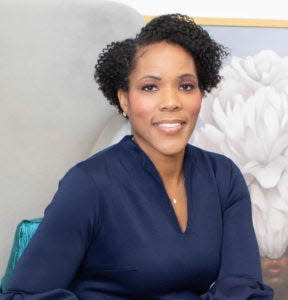
"Thank you for the acknowledgment that there are disparities. When a group of people is alienated from a system because of disparities, that group's distrust with the system will grow. Studies have shown that people of color historically have received harsher longer sentences, have their probation revoked at higher rates, and typically spend more time in jail pre-trial than their white counterparts. A diversified court system will create a judiciary with an array of knowledge and experience from different backgrounds and demographics. Those who understand the plight of the impoverished, disenfranchised, and underrepresented. Broad representation on the bench is not just monumental for the young Black or brown girl or boy to see someone Iike them and esteem to higher career goals, but also to litigants of color who will see someone handle their cases and hold them accountable to the rule of law that looks like them and is from where they are from. Planting the seed to rebuild trust."
Mary M. Shaw
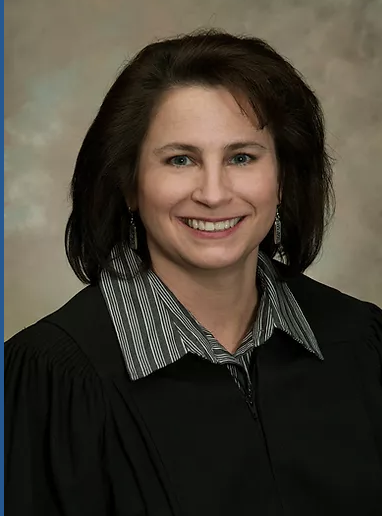
"The court system needs to be diverse just like the rest of government does, and I welcome diversity. People of color should be treated no differently when it comes to sentencing. In my courtroom, everyone is treated fairly and without bias regardless of their race, ethnicity, gender, religion, education level, job status or sexual orientation."
Division 7
Melissa Logan Bellows
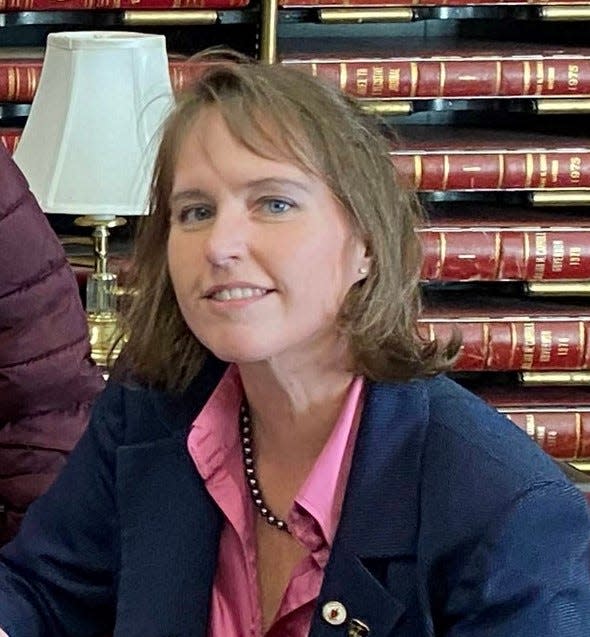
"The marginalized people of our community must have a voice in the court system. Judges must always treat all members of the community equally, and administer rulings and judgments based on the crime alone, not based on race or background"
Theodore “Ted” Shouse

"Black and brown people are disproportionately charged with crimes. Systemically, people of color receive harsher sentences than white people. These are facts. There are far fewer Black and brown lawyers and judges than there should be. These facts must be faced and dealt with openly if we are to have hope of improving trust in the court system. As a lawyer, I see these facts every day.
"I had a case a few years ago where I asked the court to send a second letter to jurors who had not answered their first summons to report for jury duty. This simple step improved the racial and economic diversity of the jury dramatically. These kinds of solutions can increase participation and can improve the public’s trust that fair justice is being administered."
Division 9
Sarah Clay
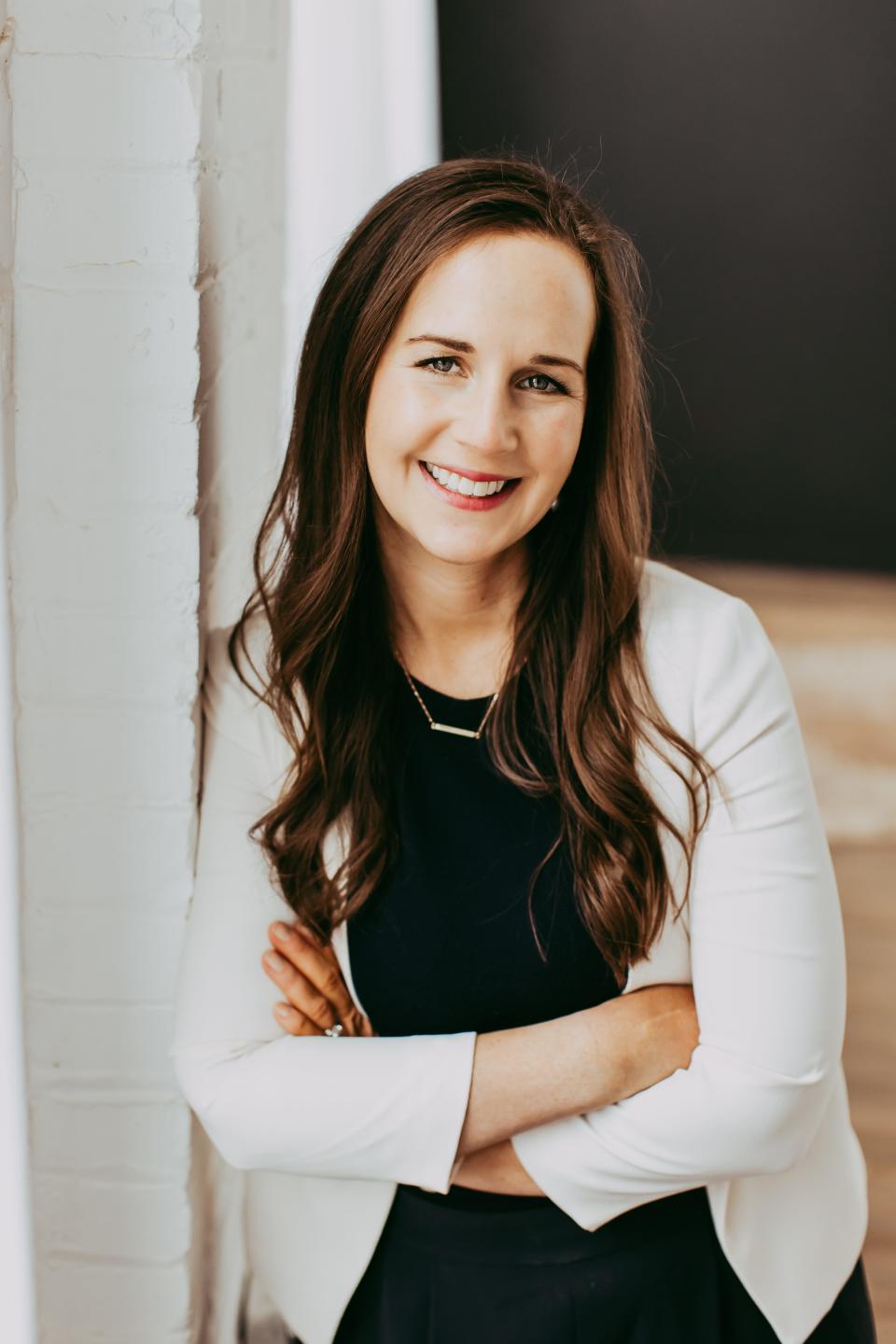
"I have spent my legal career working in the criminal justice system, and have seen first-hand how systemic racism affects every stage of proceedings, including sentencing. I believe in Equal Justice, but also know that we have to consciously work toward it if we want it to be a reality. Part of that work includes recognizing our implicit biases, and being mindful of those when evaluating the circumstances of a given case and making decisions."
Nichole Taylor Compton
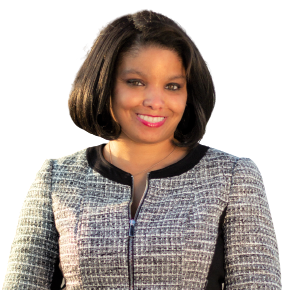
"We champion Louisville for its rich cultures and breadth of diversity. Yet, our bench doesn’t reflect that.
"It’s no secret. I’m the only candidate of color, and triple minority, in this race. While my legal practice and acumen qualify me, my life experiences uniquely position me. I understand the complexities of disparities - in race and more.
"I never complain without seeking solutions. Hence, I served on the Chief Justice’s Racial Fairness Commission, researching statistics and offering strategies to resolve issues like sentencing disparities. So, I bring a fresh perspective and mindfulness to restore faith in our system.
"Diversity matters and benefits all!
"While serving as a judicial extern to an astute Circuit Judge, an issue arose in a significant case, requiring research on the topic that was the crux of the case. Without needing to research, I thoroughly knew the info and explained to the Judge how it worked within the context of the case and the law. I had lived it!
"We must always seek ways to offer our citizens better. And I will.
"I will be a fair, impartial, thorough judge adjudicating each case with integrity, on the merits, and carefully, regardless of who is before me."
Division 10
Dorislee Gilbert
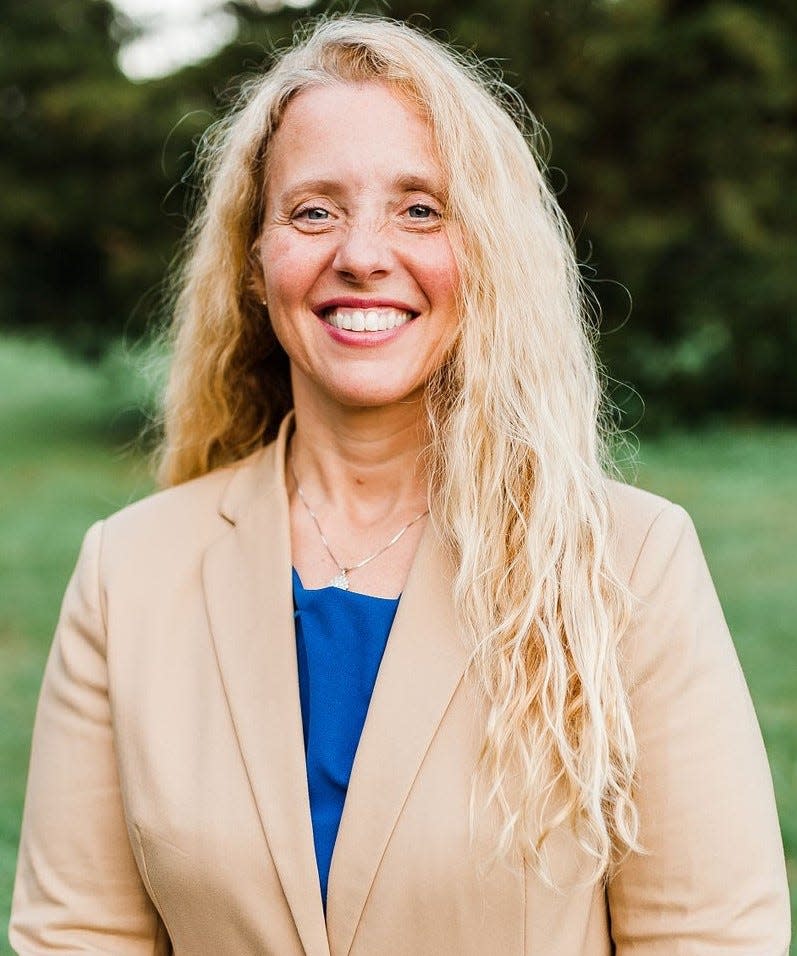
"It is important that diverse perspectives be represented in our courts, and because it is impossible for judges to fully represent our community’s diversity, we must elect judges with diversity of experience, including perspectives that are unlikely to be directly represented on the bench. For example, I am the mother of a child with Down Syndrome. It is important to have judges who can relate to his life experience. It is also important that judges be aware of and avoid bias and disparate treatment in the courts. As a graduate of Kentucky State University where I had the opportunity to enter spaces where I was the only one with white skin and as the wife of a Black man and the mother of our sons, I am deeply aware of conscious and unconscious bias in our community and justice system. With more than 15 years of experience in criminal law, I have the experience to thoughtfully consider whether factors like race, gender identity or disability are causing disparate treatment in cases."
Patricia "Tish" Morris
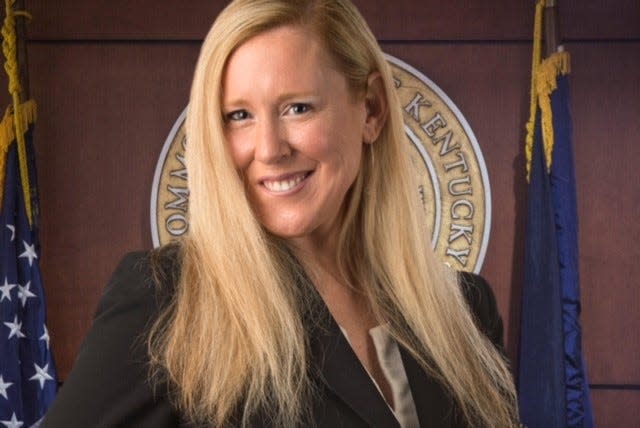
"The disparity is apparent. Some are based in the current outdated laws and some on the socioeconomic status of some communities. People of diversity appear to be of immediate disadvantage. Which causes division in the community I will serve. My job and duty is to serve our community as a fair and impartial judge applying the law to the facts presented regardless of one's race, ethnicity, creed, religion, gender and/or socioeconomic background."
More:Signing warrants? Circuit Judge candidates weigh in on accuracy and safety
How can the public be assured that you will treat all the people in your courtroom with respect and dignity, and that you will uphold the dictates of the law with the appropriate amount of discretion?
Division 4
Ebert Haegele
"Over the course of my 12-year career, I have always treated those with whom I have worked with respect and dignity. A judge’s temperament and respect for those who enter the courtroom is vital to the effective and fair administration of justice. It is also key that a judge follow the law, not seek to change the law or advocate from the bench. Over my legal career, I have remained unfailingly loyal to the law, even when I have not agreed with it. That, more than anything else, is the duty of a judge. And I believe my temperament, along with my experience, work ethic and loyalty to the law, was why Citizens for Better Judges endorsed me as the most qualified candidate in this race."
Julie Kaelin
"I am the only person in this race who has not spent my entire legal career as a prosecutor. I have been a Judge, a Public Defender, a business owner and an advocate for victims of domestic violence, among other things. My diverse legal experience has given me the true honor of sharing in the very real sorrows, fears and hopes of the people who are in our courts every day. I always keep this in the very front of my mind, and I am always trying to think of how I can make the system better for the people it is supposed to serve. One of my first steps as a Judge was to end the use of acronyms on forms and in court proceedings. I truly want people to walk out of my courtroom feeling like they know exactly what happened and why, and that they were treated fairly. I want the public to be able to have confidence in our courts."
Division 5
Tracy Evette Davis
"Courtesy and civility go a long way in the courtroom. I became a lawyer to give those without a voice, a voice. In this next step in my career I plan to give those who need a listening ear that ear to listen and be heard. Everyone deserves respect and courtesy regardless of what brings them to court. The job of a judge is to apply the law fairly and accurately. When disparate impact or an unjust outcome may be the result of applying the law as written that is when judicial discretion comes into play and should be used."
Mary M. Shaw
"I think the public can look at my fifteen-plus years on the bench and my bar poll ratings to see how I treat people. They can ask anyone who has appeared in my courtroom, whether as a criminal defendant, a witness, a victim, a family member a pro-se litigant, a juror, or an attorney and they will hear that I am a fair judge and treat all with respect and dignity. Plus, the courtroom is open to the public. Everyone is invited to come and watch how Division 5 conducts business on a daily basis."
Division 7
Melissa Logan Bellows
"I myself have faced hardships and been marginalized throughout my career. I understand how huge the responsibility is held by those on the bench, and I would listen to each person's story with fairness and humility. Over 17 years of being an attorney, I have practiced in front of a multitude of judges in over 20 counties across the commonwealth. The best judges I practiced in front of were the ones that gave their full attention to all of those who were brought in front of him or her. I would embody that type of Judicial demeanor and know that we need to both listen to and explain the rights of defendants, etc. Everyone deserves their "day in court"- I will ensure that everyone is afforded this basic right."
Theodore “Ted” Shouse
"For 23 years I have represented economically disadvantaged people facing serious criminal charges. Part of my responsibility as a lawyer has been fighting for my clients’ humanity; fighting to ensure that their inherent dignity is recognized. Every person, regardless of background and circumstance, must be treated equally.
"I know what it is to be disrespected in a courtroom; I will never allow anyone to feel that in Division 7 – period. "
Division 9
Sarah Clay
"I believe a look at my career would provide that assurance. I don't just have legal experience - I have the right legal experience for the bench. I've been a trial attorney here for nearly ten years, and have practiced in every courtroom in Jefferson County. I spent the first 4 years of my legal career as an Assistant Public Defender here in Louisville, where I represented some of our most vulnerable citizens. I also served as the PD for Jefferson County's first Misdemeanor Drug Court, which I helped launch in 2015. In 2018, I served on the planning committee to launch the Family Recovery Court, and have worked extensively in Mental Health Court. I've managed my own law firm since 2016, where I focus on representing disadvantaged clients in criminal and civil cases. I'm also appointed to represent low-income parents and children in Family Court. Equal Justice and maintaining the integrity of the legal profession are not just political talking points for me, and my career proves it"
Nichole Taylor Compton
"Unbossed. Unbought. Unbiased.
"I was raised by parents who taught by example to treat everyone humanely, care about others and our community, and maintain integrity even in the toughest situations. As a triple minority, I have always treated people with respect and dignity, fundamental principles I live by. I’ve witnessed public servants who have not and why it’s so important in our courts. Judges are public servants tasked with upholding the law and serving all. We ensure fairness and equity and pursue justice, regardless. My 16-year record, practicing law and representing clients from all walks of life, cultures, ethnicity and issues, is proof of the same.
"And as a mother and mediator, I consistently use discretion, weighing when grace is warranted or a different approach or penalty is more effective penalty and longer-lasting solution. I’ll take the time to evaluate each case on its merits, within the confines of the law, but using judicial discretion wisely, as I already do as an arbitrator.
"I bring a balance of competence, care for all people and commitment to justice, seeking opportunities to ensure justice but treat people humanely. Competent. Caring. Committed to justice. That’s me and why I ask for your vote."
Division 10
Dorislee Gilbert
"I am a woman of strong faith who believes that all people are worthy of dignity and respect—no matter what has happened to them or what they are accused of doing. I have treated victims of crime and criminal defendants accused even of heinous offenses with dignity and respect. For example, as a prosecutor, I met with and respectfully listened to a convicted sexual offender’s plea for release, though I did not agree with him. My career has also required appropriate exercise of discretion. As a prosecutor, I exercised discretion daily in charging decisions, plea bargains and appellate matters. As the Executive Director of the Mary Byron Project, I exercised discretion regarding allocation of funds and program planning. My decisions are influenced by my experience in trauma-informed advocacy and my beliefs that empathy is an important part of justice and that valuing people and their experiences, even while fairly and justly applying the law, is possible and necessary."
Patricia "Tish" Morris
"I am comfortable in the courtroom. In addition to basically growing up in the court system with my father, Geoffrey “Jeff” Morris, I became an attorney almost 20 years ago. I have learned from one of the best (my father) and have lived through almost every aspect of the law. I have practiced in the areas of criminal defense, civil litigation, family law, to probate and estates. I have a strong desire for fairness and equality despite anyone’s race, religion, sexual orientation, socioeconomic position, or gender. I will abide by the laws as outlined by the lawmakers and add in the element of kindness, fairness and hope to all of those that might come before me.
This article originally appeared on Louisville Courier Journal: Circuit Court Judges: Candidates debate more equitable sentencing

